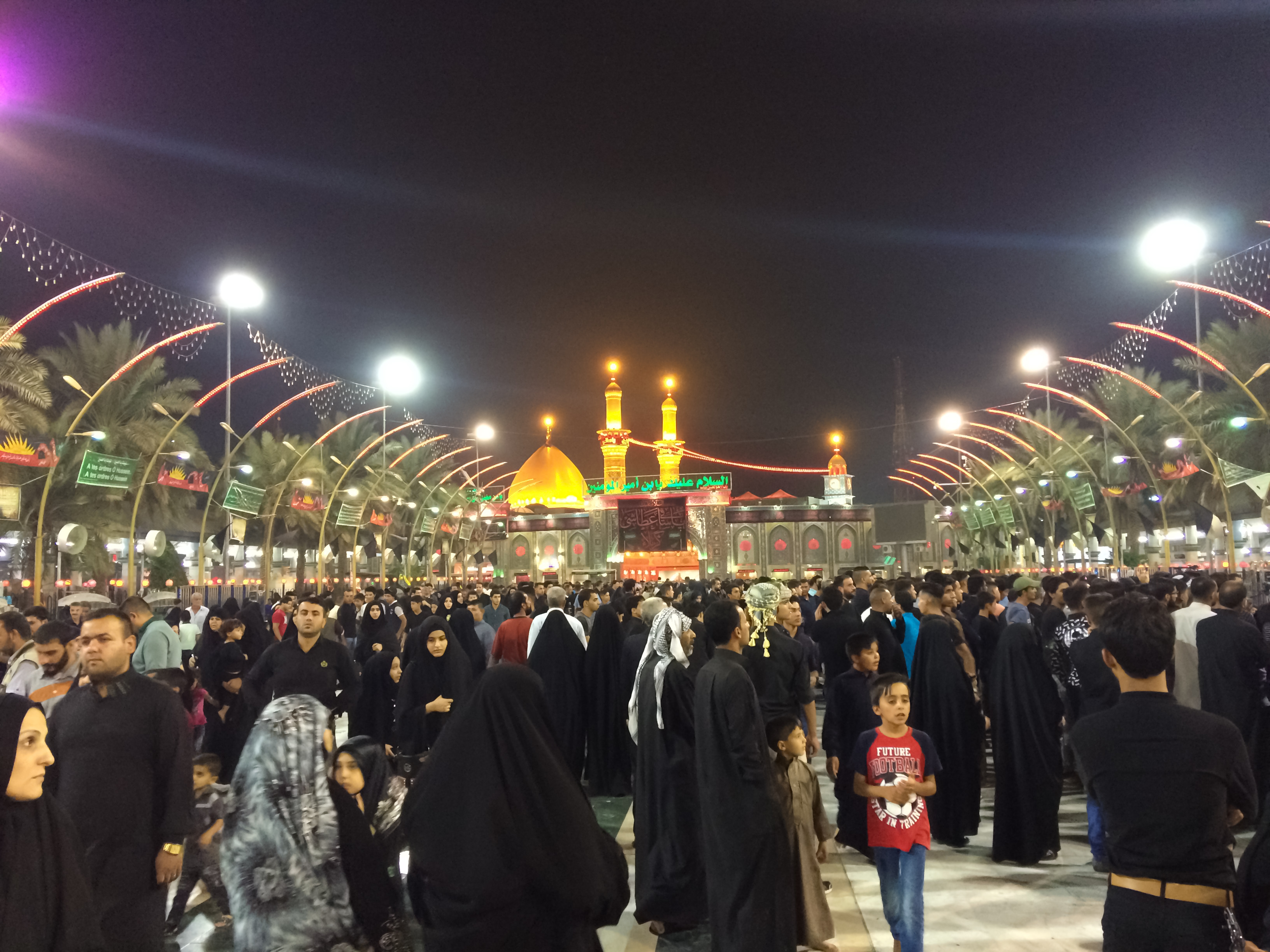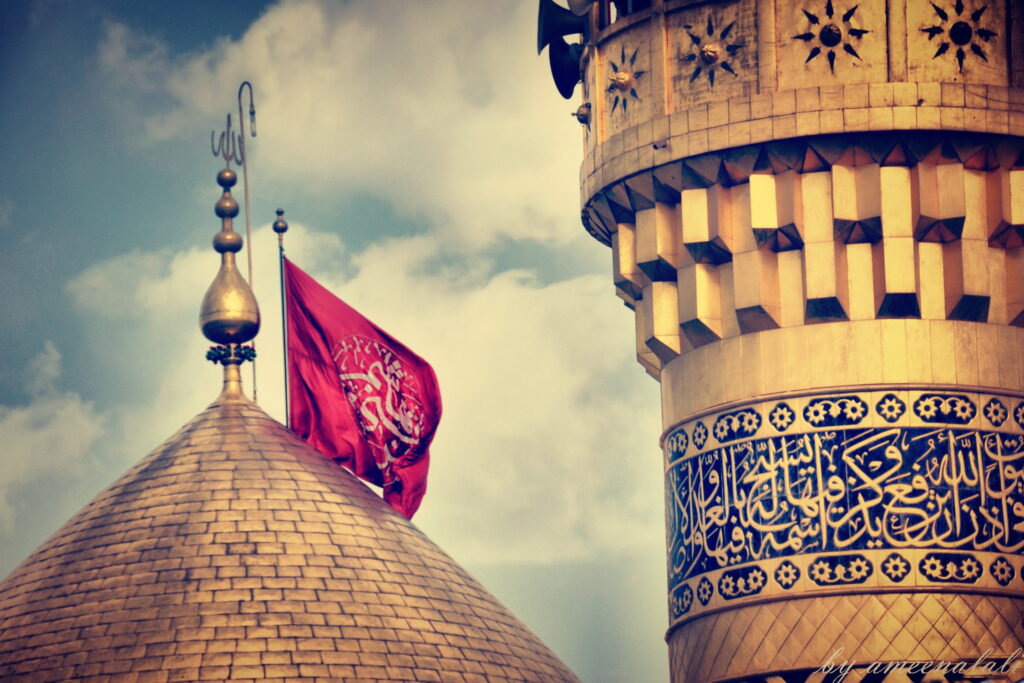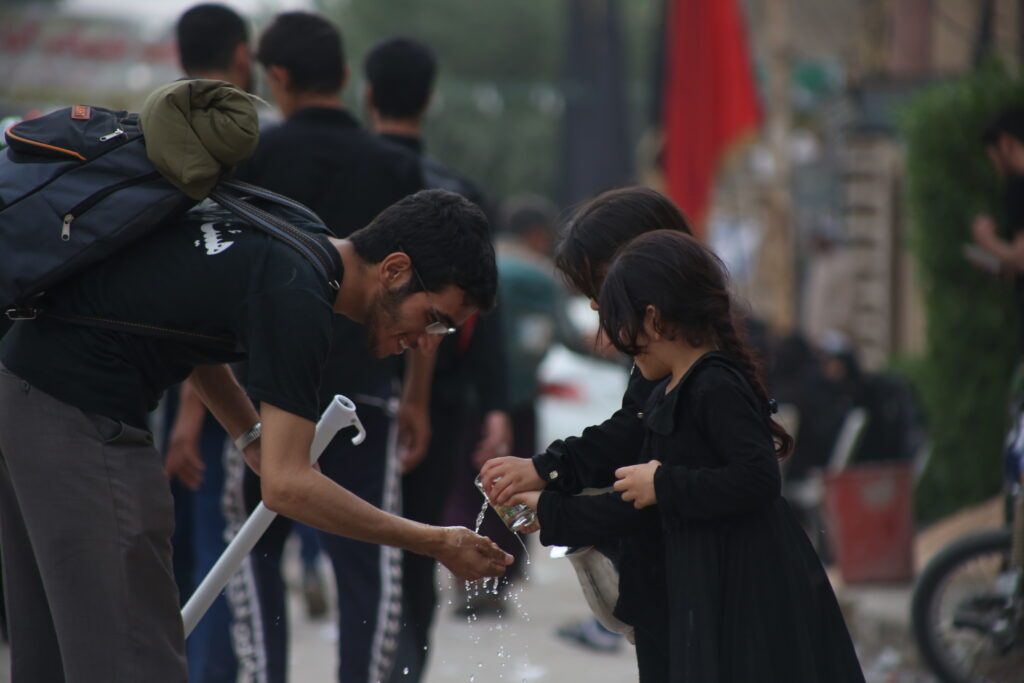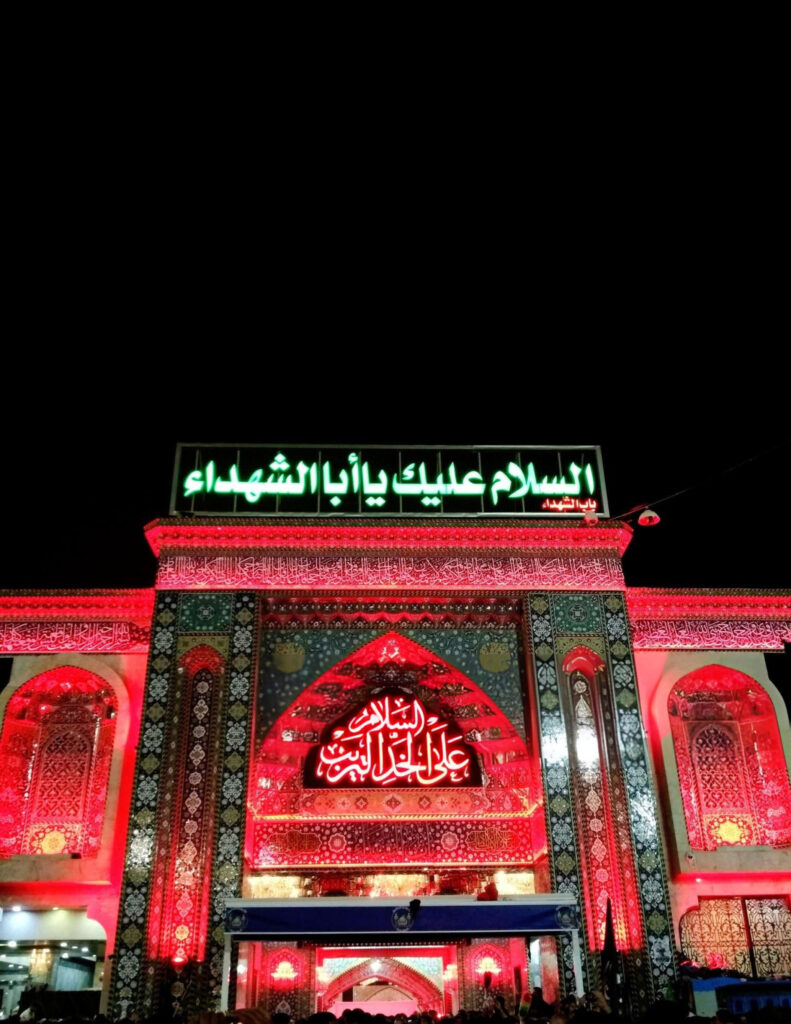Karbala, a city steeped in profound historical significance, stands as a testament to the enduring legacy of Islamic heritage and culture. Nestled in Iraq, this sacred city is not only a pilgrimage site but also a hub of rich traditions that have evolved over centuries. The vibrancy of Karbala is reflected in its striking architecture, bustling markets, and the traditional clothes in Karbala that capture the essence of its cultural identity. Each year, the poignant Tuwairij run draws thousands of faithful, commemorating the life and martyrdom of Imam Hussain, a central figure in the city’s storied past. Join us as we delve into the remarkable history of Karbala, uncovering the tales that have woven this captivating city into the fabric of Iraqi and Islamic heritage.
The Significance of Imam Hussain Shrine in Karbala
The Imam Hussain Shrine in Karbala is a symbol of faith and strength for millions. It’s where Imam Hussain, the Prophet Muhammad’s grandson, is buried. He stood against tyranny at the Battle of Karbala in 680 CE. The shrine’s architecture, with its mosaics and golden domes, draws many pilgrims. It’s a place of spiritual significance and a reminder of sacrifice and courage. These values inspire people today.
Karbala museums are next to the shrine. They preserve the history of Imam Hussain and Islamic traditions. These museums have artifacts and exhibits that tell the story of the Battle of Karbala and its impact on Islam.

Karbala monuments also add to the city’s history. Places like the Al-Askari Shrine show the city’s growth and respect for Imam Hussain. These monuments are more than just old buildings; they represent a shared legacy of sacrifice and courage. The Imam Hussain Shrine, museums, and monuments are key to Karbala’s spiritual and historical significance. They offer lessons on justice and the human quest for truth and fairness.
Exploring the Cultural Heritage of Karbala City
Karbala is a city filled with deep history and culture. It’s in Iraq and is famous for the Battle of Karbala in 680 CE. This event is key in Islamic history and has shaped the faith for many. Every year, pilgrims and tourists come to experience its traditions and stories. They get to see more than just sights; they can dive into local customs and try the food.
The city’s markets and shops are full of handmade goods and religious items. The mosques, with their beautiful tiles and calligraphy, show the city’s Islamic roots. Walking through the bazaars, you’ll smell traditional foods like dolma and baklava, inviting you to taste Iraqi hospitality.
Many people visit Karbala for religious reasons, drawn to the Imam Hussain Shrine. This place is not just for worship but also symbolizes sacrifice and resilience. During Ashura, the rituals create a powerful emotional atmosphere, showing devotion everywhere.
Visitors can join in these events, learning about their importance. Karbala’s history is told in every corner, from brave warriors to symbols of hope. This mix of history and culture makes Karbala a special place for spiritual and cultural experiences.
Karbala: A Pilgrimage Destination like no other
Karbala is a city with deep historical and spiritual importance. It’s in Iraq and is a major pilgrimage site, attracting millions, mainly in Muharram. This month commemorates the martyrdom of Imam Hussain, the Prophet Muhammad’s grandson, a key event in Shia Islam. Visitors find many places to stay, from simple lodgings to luxury hotels. The locals are very welcoming, often providing food and shelter. This warm welcome shows the city’s spirit of brotherhood and compassion, creating a peaceful space for reflection and prayer.
The journey to Karbala is not just physical but also spiritual. The shrines of Imam Hussain and his brother, Abbas, are sacred sites. Pilgrims come seeking solace, healing, and a deeper faith connection. They share stories, form bonds, and celebrate the martyrdom, creating a powerful atmosphere of grief and joy.
Hazrat Abbas ibn Ali (AS), revered as Abu al-Fadl, was not only known for his bravery but also for instilling fear in the hearts of his enemies during the Battle of Karbala. His formidable presence on the battlefield was unmatched; he was a skilled warrior with exceptional combat abilities, which made him a feared figure among the opposing forces. The enemy soldiers, aware of his prowess and fierce dedication to his brother Imam Hussain (AS), often trembled at the thought of facing him in battle.
Abbas’s reputation as a fierce warrior preceded him, and many foes were disheartened at the prospect of confronting him. His unwavering loyalty to Imam Hussain and the values of justice and truth further fueled their fear. On the day of Ashura, as he charged into battle with his famous standard, the enemy felt a wave of trepidation, knowing they were up against a warrior who was not only brave but deeply committed to the cause of righteousness.

Despite being outnumbered, Abbas fought valiantly, striking down numerous adversaries and defending his family and their beliefs. His heroic acts not only inspired his companions but also terrified the enemy, as they realized they were facing a man who would stop at nothing to protect the innocent and uphold justice. His legacy of courage, strength, and unwavering faith continues to resonate, reminding people of the power of true conviction and the impact one individual can have on the hearts of many.
Karbala is more than a place; it’s a symbol of sacrifice, loyalty, and fighting against oppression. Its history and spiritual depth invite pilgrims on a journey beyond its physical boundaries. For those who visit, Karbala leaves a lasting memory, rekindling faith and teaching compassion and courage.
Unraveling the Legends and Myths of Karbala
Karbala is a city filled with history and deep meaning for millions. It’s a place of great reverence, known for the martyrdom of Imam Hussain, the Prophet Muhammad’s grandson. Every year, many people travel to Karbala, drawn by the month of Muharram. This journey is more than just walking. It’s a spiritual path where people honor Hussain’s bravery and sacrifice. The battle of Karbala inspires devotion, solidarity, and resistance against tyranny.
The stories of Karbala are rich and varied. They include tales of supernatural events and divine signs. These stories are woven into the city’s culture, shaping its identity.
The people of Karbala keep these legends alive through stories, art, and religious practices. This ensures that Imam Hussain’s legacy stays vibrant for future generations.
Karbala’s food also plays a big role in its culture. Traditional dishes are shared during religious events, showing the spirit of unity. Stews, rice dishes, and sweets are given freely to pilgrims, strengthening community bonds.
This culinary tradition connects the city’s history with everyday life. It shows how deeply Karbala’s past has enriched its culture. Walking to Karbala is more than just a physical journey. It’s a path through centuries of faith, loss, and reverence. Each step connects the past with the present, bringing hope for a just future.
The Resilience and Spirit of Karbala City
Karbala City is known for its history and spiritual importance. It’s home to the Imam Hussein Shrine, attracting millions of pilgrims. Their visit is a show of faith and devotion, touching both visitors and locals. The city’s old alleys show the local life’s vibrancy. The architecture tells stories of generations. The markets are full of colors and smells, showing the city’s rich culture.

Despite challenges, Karbala’s people remain strong. They find strength in their history and stories of resilience. This unity and pride in heritage keep their traditions alive.
The people of Karbala face adversity with courage. Their faith and spirit show Karbala’s resilience. Pilgrims from around the world join this journey, honoring the past and looking to the future.
Karbala: Where History and Faith Intersect
Karbala is a city where history and faith come together in a powerful way. It’s known for the Battle of Karbala in 680 CE, a key event in Islamic history. The martyrdom of Imam Hussein and his companions symbolizes the fight against tyranny and injustice. Every year, millions of pilgrims come to Karbala to honor Hussain’s ideals. They participate in mourning rituals and processions, showing their devotion and commitment.
The experience of ziyarah in Karbala is deeply spiritual. Visitors go to the shrines of Imam Hussein and his half-brother Abbas. The city becomes a place of devotion and brotherhood, filled with prayer and elegies.
The rituals of ziyarah have deep emotional significance. They strengthen community bonds and offer spiritual awakening. Pilgrims from all backgrounds come together, united by their faith.
Safety is a major concern for pilgrims going to Karbala. Efforts have been made to ensure visitors can practice their faith without fear. Local and international authorities work to keep the city safe, creating a peaceful environment for worship.
Karbala is more than a place; it’s a story of belief, sacrifice, and community. Visitors find it a heart pilgrimage, reaffirming their faith and connecting to a timeless legacy. The city’s rituals and journeys of ziyarah teach us about resistance and faith.
Witnessing the Spiritual Journey of Pilgrims in Karbala
Seeing pilgrims in Karbala is more than watching; it’s being part of a deep devotion. Millions come from all over, drawn by Karbala’s history and spirituality. The streets buzz with energy as pilgrims remember Imam Hussain’s sacrifice. A travel guide to Karbala shows the significance of each shrine. The al Abbas shrine honors loyalty and valor. It’s a place of solace and spiritual connection for pilgrims.

The journey through Karbala is filled with rituals and customs that deepen the spiritual experience. As night falls, the atmosphere changes. People gather for communal prayers and share stories of Ashura’s tragic events.
These moments of mourning bring everyone together, no matter their background. The streets are filled with kindness as food, water, and shelter are given freely. This shows the unity of belief and remembrance in Karbala.
These acts of kindness highlight the essence of Karbala’s spiritual journey. They remind us of Imam Hussain’s values. It’s a powerful reminder of what it means to be part of this journey.
In this vibrant setting, pilgrims remember historical events and undergo personal transformation. Every interaction and prayer sparks a spiritual awakening. This awakening shows the connection between personal goals and the community’s ethos. Seeing this connection is rare. It shows the power of faith in Karbala. It invites each traveler to a deeper understanding of themselves.
Karbala City: A Sanctuary of Peace and Devotion
Karbala City is a sanctuary of peace and devotion, attracting millions each year. It’s known for the events of Ashura, where Imam Hussain was martyred. Visitors find themselves in a reverent atmosphere, surrounded by ancient and modern structures. The locals’ hospitality makes the experience even better. There are many places to stay, ensuring a restful break after exploring.
Walking through Karbala’s old city, time seems to disappear. The architecture tells stories of the past. Narrow alleys are filled with devotion, as pilgrims pray and seek blessings.
Every corner reveals the city’s spiritual heart. History and devotion blend seamlessly here. Visitors often find companions in their quest to understand this remarkable city. The local food in Karbala is a testament to its rich culinary heritage. Street vendors and family-run restaurants offer traditional dishes. Dining here is an adventure, with meals fostering camaraderie among pilgrims.
The Architecture and Beauty of Karbala’s Landmarks
Karbala is known for its stunning landmarks that showcase spiritual devotion and artistic beauty. The Imam Hussain Shrine is the city’s centerpiece. It’s a masterpiece of Islamic architecture, with beautiful tile work and golden domes. Visitors are awestruck by the shrine’s beauty. The courtyards echo with prayers and chants, creating a spiritual atmosphere. This site is a testament to bravery and faith.
Near the shrine, the Al-Abbas Shrine stands as a symbol of Imam Hussain’s half-brother’s bravery. Its architecture is a blend of elegance and strength. The shrine’s minarets and colorful mosaics make it a visually stunning landmark.
Together, the Imam Hussain and Al-Abbas Shrines create a breathtaking skyline. They attract pilgrims and tourists worldwide. The local community’s warm hospitality enhances the experience, welcoming guests with open arms.
Walking through Karbala’s streets, you feel a sense of unity and devotion in the air. The city’s landmarks, beyond the main shrines, tell stories of Karbala’s history. Gardens, fountains, and small mosques show the region’s rich culture and art. Each place invites you to think about the past events. It inspires you to value sacrifice and devotion. These values were key to those who lived here before us.

